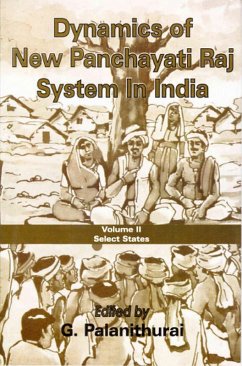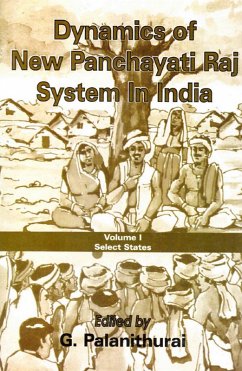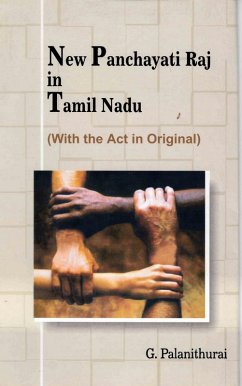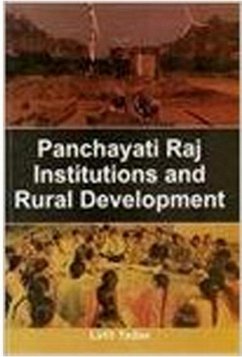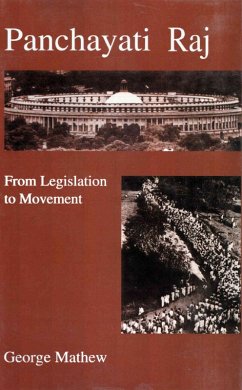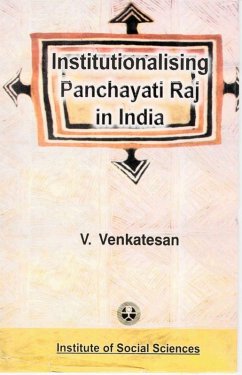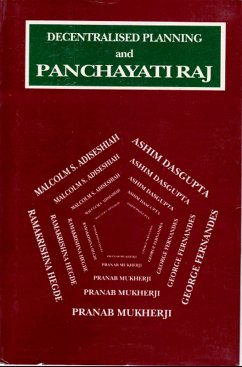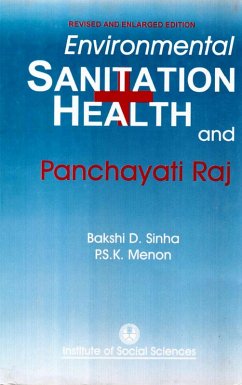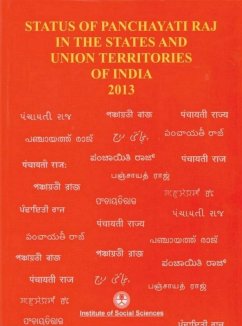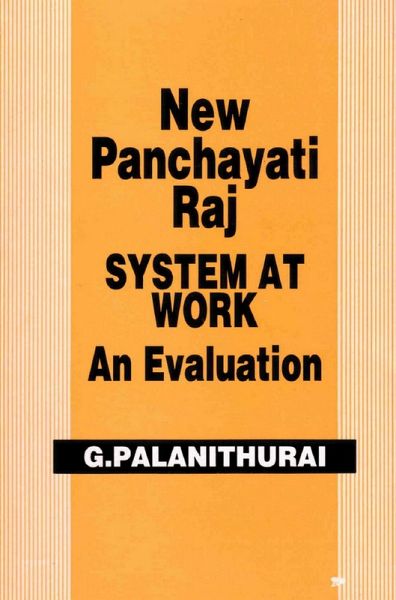
New Panchayati Raj System at Work: An Evaluation (eBook, ePUB)

PAYBACK Punkte
17 °P sammeln!
In the light of the redefinition of governance, globalization of economy and decentralization of power at present, the role of the government is not that of a provider but a facilitator. How human collectivities have perceived the new disposition is a major question daunting the minds of all today. New Panchayati Raj System at Work : An evaluation is the outcome of the repeated exercise done at various villages analysing the functions of the new panchayati raj system. The New Panchayati Raj System established through the 73rd Amendment to the Constitution of India emphasised the major original...
In the light of the redefinition of governance, globalization of economy and decentralization of power at present, the role of the government is not that of a provider but a facilitator. How human collectivities have perceived the new disposition is a major question daunting the minds of all today. New Panchayati Raj System at Work : An evaluation is the outcome of the repeated exercise done at various villages analysing the functions of the new panchayati raj system. The New Panchayati Raj System established through the 73rd Amendment to the Constitution of India emphasised the major original function of achieving economic development and social justice by performing planning exercise at the grass-root level with the active participation of the people. 243(G) is the operative clause of the Amendment which has been properly understood by only a few leaders and states. In Tamil Nadu, what is going on in the rural areas after the election to the Local bodies is the major concern of the study. This work brings out the details of the mind-set of the elected local body leaders and the bureaucrats who are working in the Local body institutions. The interface between the leaders and the officials has also been highlighted in this work. The practical difficulties faced by the local body leaders in discharging their role, function and responsibilities have been the focus of discussion in this work based on the case analysis. Major concern is whether the Tamil Nadu Panchayati is moving in the direction given by the 73rd Amendment to the Constitution of India. This study finally explicitly indicates the lapses, drawbacks and difficulties in operationalising the principles of the constitutional amendment. This book will be widely welcomed by the supports of the grass-root democracy and all those involved in rural development.
Dieser Download kann aus rechtlichen Gründen nur mit Rechnungsadresse in A, B, BG, CY, CZ, D, DK, EW, E, FIN, F, GR, HR, H, IRL, I, LT, L, LR, M, NL, PL, P, R, S, SLO, SK ausgeliefert werden.




